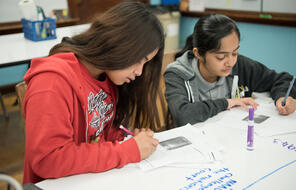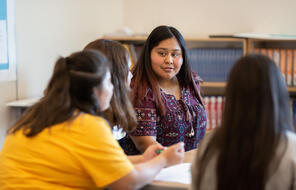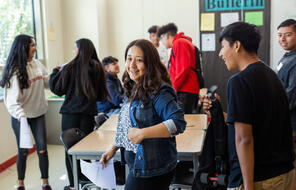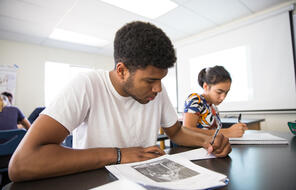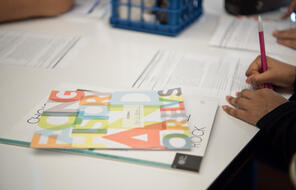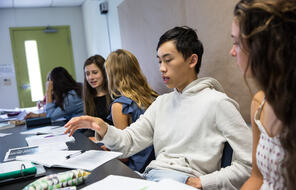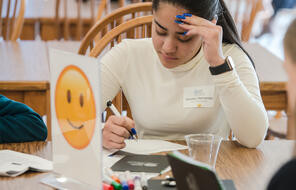
Levels of Questions
At a Glance
Language
English — USSubject
- English & Language Arts
- History
- Social Studies
Grade
6–12Overview
What Are the Three Levels of Questioning?
The Levels of Questions strategy helps students comprehend and interpret a text by requiring them to answer three types of questions about it: factual, inferential, and universal. This scaffolded approach provides an opportunity for students to master the basic ideas of a text so that they can apply this understanding and “evidence” to conversations about deeper abstract concepts or complex historical events. Because you can focus students’ attention on the level of questions most appropriate to their reading ability, this strategy can meet the needs of different learners. You can also use the Levels of Questions strategy to prepare students for a class discussion or activity, or as an assessment tool.
Lesson Plans
How to Use the Three Levels of Questioning
Variations
Unlimited Access to Learning. More Added Every Month.
Facing History & Ourselves is designed for educators who want to help students explore identity, think critically, grow emotionally, act ethically, and participate in civic life. It’s hard work, so we’ve developed some go-to professional learning opportunities to help you along the way.
Exploring ELA Text Selection with Julia Torres
On-Demand
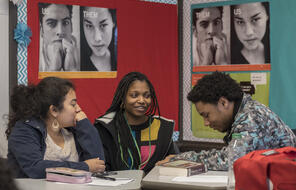
Working for Justice, Equity and Civic Agency in Our Schools: A Conversation with Clint Smith
On-Demand

Centering Student Voices to Build Community and Agency
On-Demand


